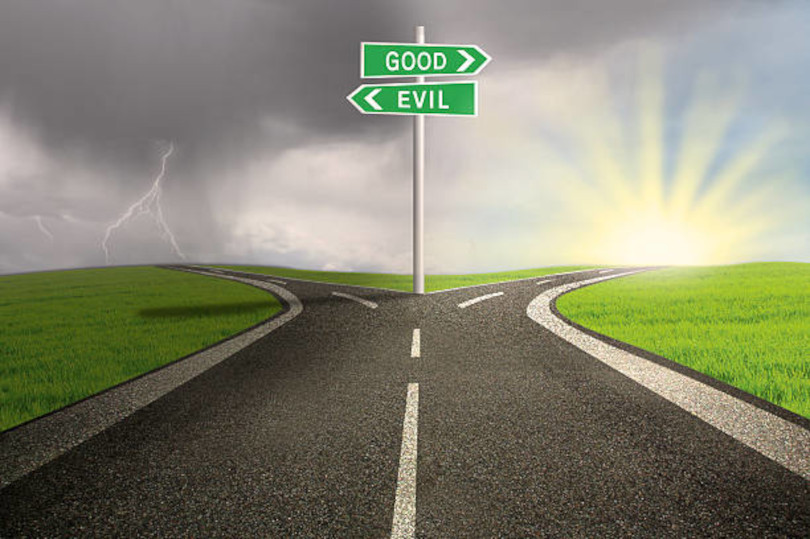There’s a reason cut-and-dried contests between good and evil occur more frequently in fairytales than reality. Such fantasies aren’t subject to humanity’s “absolute chaos of differences” that Hannah Arendt wrote political bodies seek to find common threads in. This chaos rarely allows for situations in which the good guys are always good and the bad guys always bad—take the Democratic White House’s contribution to the systemic destruction of the Gaza Strip for example. From a conservative viewpoint, take the hypocrisy of vaunting the virtues of democracy while violently opposing it, or of championing freedom while revering defenders of slavery ardently enough to kill in their honor. We’re simply too complex for bipartisanship to tidily divide us into camps of good and bad, yet that’s the story both parties sell: “Come with me if you want to live,” etc.
Buying into this good/bad binary is a dangerous error. While much of the voting public at least temporarily places their faith in it during elections, truly believing in it—that is, even in odd-numbered years—is a wholly separate act. Doing so vests political parties with the power of ultimate moral authority, effectively eliminating the necessity of individual thought and converting the people they’re sworn to serve into mindless political agents: nothing more than human capital. People become indistinguishable from votes while moral concerns become indistinguishable from political ones.
The conflation of the political and moral is perhaps the most alarming aspect of the ongoing battle, also known as “culture wars,” which are not nearly as novel as news outlets will have you believe—the national conscience has been at war for as long as we’ve been a nation. What was once the debate over slavery and Jim Crow is now the debate over manifestations of white supremacy less willing to speak their name, most notably the racism and xenophobia practiced by alt-right politicians and groups. Herein lies the conflation. Proponents of alt-rightism are taught to place unnecessary stress on the “rightism,” leading them to believe their prejudicial animus to be a product of political opinion.
If we allow politicians and pundits to decide what is right and wrong for us, to convince us that we are locked in spiritual battle with their enemies, then we forever will be, as perpetual conflict is a defining characteristic of the two-party system. We’ll not only be deadlocked politically with no end in sight or even imaginable, as we have always been, but deadlocked morally, completely incapable of independently determining how best to serve ourselves and our countrymen. We’ll act out whatever quarrel they script for us like players in a theatre.
The battle for our soul does not—and cannot—stop at politics. It is only by centering people, not politics, in our decision-making that we may begin to effect change and see progress. As Thomas Paine once did, we must decide for ourselves what is common sense, lest our reasoning be tainted by those seeking to control us.
Featured image courtesy of CreativaImages on iStock.


